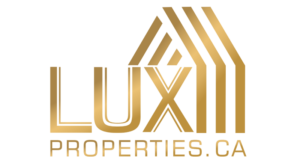Buying Houses in Bloor Street Toronto
Buying Houses in Bloor Street Toronto is a great choice. This area offers luxury homes, convenience, and a vibrant lifestyle. Bloor Street in Toronto is famous for upscale shopping and fine dining. Many professionals and families prefer living here. The area has excellent schools and universities. Education options are diverse and easily accessible. Public transportation is efficient. Subway stations and bus routes make commuting easy.
Buying Houses in Bloor Street Toronto provides access to cultural landmarks. Museums, theaters, and art galleries are nearby. This area has beautiful parks and green spaces. Residents enjoy walking trails and outdoor activities. Real estate options include condos, townhouses, and luxury homes. Various budgets can find suitable choices.
Property values in this area continue to rise. It’s a smart long-term investment. Bloor Street offers a mix of modern and historic architecture. The neighborhood has a unique charm. Buying Houses in Bloor Street Toronto ensures a vibrant, convenient, and luxurious urban lifestyle.
Buying Houses in Bloor Street Toronto : Available Types And Price
Bloor Street in Toronto is a prime destination for homebuyers. The area is known for its mix of modern and historic buildings. It offers a variety of housing options, from affordable condos to multi-million-dollar luxury homes. The location is highly desirable due to its proximity to top shopping districts, cultural attractions, and business centers. Residents enjoy easy access to subway lines, high-end restaurants, and entertainment venues. Home prices in this area vary widely, depending on the type of property, size, and amenities. Buying a home on Bloor Street requires careful financial planning and market research. Understanding the different types of houses and their costs helps buyers make informed decisions.
Condominiums
Condos are among the most popular housing options on Bloor Street. They are ideal for singles, couples, and small families. Condos offer modern living spaces with access to amenities such as gyms, pools, and security services. Some high-end condos even provide concierge services, private lounges, and rooftop terraces. Prices vary based on location, building quality, and included features. A one-bedroom condo costs around $600,000 to $800,000. Larger two-bedroom units range from $900,000 to $1.5 million. Luxury condos in premium buildings can exceed $2 million. Monthly condo fees cover building maintenance, utilities, and security. While condo living is convenient, buyers should consider these additional expenses.
Townhouses
Townhouses offer more space and privacy than condos. They are a great choice for families or individuals needing extra rooms. Many townhouses have multiple floors, private entrances, and small yards. Some also include attached garages and rooftop patios. Prices depend on factors like location, size, and design. Standard townhouses in Bloor Street cost between $1.2 million and $1.8 million. Luxury townhouses with modern architecture and high-end interiors can exceed $2.5 million. Some townhouses are part of gated communities, providing added security and exclusive amenities. Buyers should consider maintenance fees and potential renovation costs when purchasing a townhouse.
Detached Houses
Detached houses offer maximum privacy, making them a top choice for families and investors. They provide spacious living areas, private backyards, and multiple bedrooms. Detached homes on Bloor Street are highly sought after, and their prices reflect this demand. A small detached home costs around $2 million. Larger properties with modern renovations range from $3 million to $5 million. Ultra-luxurious detached homes with large lots, smart home technology, and designer interiors can exceed $8 million. Many detached homes in this area have historical value, featuring classic Toronto architecture. Buyers should budget for maintenance, renovations, and property taxes when purchasing a detached home.
Semi-Detached Houses
Semi-detached houses are a popular alternative to detached homes. These properties share one common wall with a neighboring house, reducing costs while maintaining a sense of privacy. They often include multiple bedrooms, private driveways, and small yards. Semi-detached homes in Bloor Street offer a balance between affordability and space. Prices range from $1.5 million to $2.5 million, depending on the size and condition. Renovated semi-detached homes with modern interiors, updated kitchens, and finished basements can cost over $3 million. These homes provide more space than condos and townhouses while requiring less maintenance than fully detached houses.
Luxury Homes
Bloor Street is home to some of Toronto’s most luxurious properties. These high-end residences feature custom designs, high-end finishes, and advanced smart home technology. Many luxury homes include private pools, home theaters, wine cellars, and spacious outdoor areas. The demand for luxury properties in this area is high due to its prime location and exclusivity. Prices for luxury homes start at $5 million and can reach $15 million or more. Some of these homes are located in private gated communities, offering extra security and privacy. Buyers looking for luxury properties often hire real estate agents and financial advisors to guide them through the purchasing process.
Heritage Homes
Heritage homes on Bloor Street are highly valuable due to their historical significance. These houses feature unique architectural details, including intricate woodwork, stained glass windows, and vintage fireplaces. Many of these homes have been carefully restored to maintain their original charm while incorporating modern conveniences. Prices vary based on location, condition, and historical value. A small heritage home costs around $2.5 million, while larger, well-preserved properties can reach $6 million. Buyers should be aware that heritage properties often come with renovation restrictions to preserve their historical status. Maintaining these homes requires specialized care, which can add to long-term costs.
Pre-Construction Homes
Pre-construction homes allow buyers to purchase properties before they are built. These homes provide the advantage of customization, enabling buyers to choose layouts, finishes, and upgrades. Pre-construction condos on Bloor Street start at $500,000 for smaller units. Townhouses in the pre-construction phase typically range from $1 million to $1.5 million. Custom-built detached homes in development projects start at $3 million. One of the main benefits of pre-construction homes is the potential for price appreciation before completion. However, buyers should be aware of potential delays and construction risks. It is important to work with reputable developers to ensure a smooth process.
Rental Investment Properties
Bloor Street is a prime location for real estate investors. Many buyers purchase properties to rent out and generate passive income. Rental prices vary depending on the type of property. Condos generate monthly rental income of $2,500 to $5,000, depending on size and location. Townhouses offer rental income ranging from $4,000 to $7,000 per month. Detached homes, especially those with multiple units, can generate rental income exceeding $10,000 per month. Investors benefit from strong demand for rental properties due to the area’s central location and access to public transportation. However, they must consider property management costs, maintenance, and potential vacancies.
Factors Affecting House Prices
Several factors influence house prices on Bloor Street. One of the biggest price drivers is proximity to subway stations, as homes near transit hubs are in higher demand. The presence of luxury shopping centers, cultural attractions, and entertainment venues also increases property values. Market trends play a key role in price fluctuations, with demand rising during economic booms. Mortgage rates and financing options affect affordability for buyers. Government regulations, including taxes and foreign buyer policies, also impact housing prices. Buyers should consider these factors when making a purchasing decision to ensure they invest in a property that meets their needs and budget.
Buying a house on Bloor Street in Toronto is a significant investment. The area offers a diverse range of housing options, from condos to luxury estates. Each type of property has its advantages, whether it’s affordability, space, or exclusivity. Prices vary widely based on location, size, and amenities. Buyers must conduct thorough research and financial planning before purchasing. Working with real estate agents and financial advisors helps buyers navigate the market effectively. Whether looking for a primary residence or an investment property, Bloor Street remains one of Toronto’s most desirable locations.
The Legal Process of Buying Houses in Bloor Street Toronto
Buying a house on Bloor Street in Toronto requires understanding the legal steps involved. The process includes legal paperwork, financial approvals, and property inspections. Buyers must follow regulations set by the government and real estate authorities. Proper legal guidance ensures a smooth transaction and prevents future disputes. Understanding the legal framework helps buyers make informed decisions. Each step requires careful attention to detail and professional assistance.
Hiring a Real Estate Lawyer
A real estate lawyer is essential for handling legal matters. They review contracts, ensure compliance with laws, and protect the buyer’s rights. Lawyers check for any legal issues with the property, such as liens or unpaid taxes. They also help buyers understand complex legal terms in agreements. Hiring an experienced lawyer reduces risks and prevents potential legal problems. The lawyer ensures the transaction follows provincial and municipal regulations.Mortgage Pre-Approval
Securing a mortgage pre-approval is a crucial step in the buying process. Lenders assess the buyer’s financial status before approving a loan. Mortgage pre-approval helps buyers determine their budget and avoid financial difficulties. It also strengthens the buyer’s position in negotiations. Banks and financial institutions require credit checks, proof of income, and debt assessments. Buyers should compare mortgage rates and terms before finalizing a lender.Making an Offer
Once a suitable property is found, the buyer submits an offer. The offer includes the price, conditions, and closing date. Sellers may accept, reject, or counter the offer. A lawyer reviews the offer before submission to ensure legal clarity. Conditional offers provide buyers with protection, allowing them to back out under specific circumstances. Conditions may include financing approval, home inspection, or repairs by the seller.Home Inspection
A home inspection is an important legal step before finalizing the purchase. Inspectors assess the property’s condition, identifying potential issues. Common problems include structural damage, plumbing leaks, or electrical hazards. If major defects are found, the buyer can renegotiate the price or request repairs. Some sellers provide inspection reports before listing the property. However, independent inspections give buyers peace of mind. Legal disputes may arise if undisclosed issues are discovered after purchase.Title Search and Title Insurance
A title search ensures the property is legally owned by the seller. Lawyers check for liens, unpaid taxes, and legal disputes. Any issues with the title can delay or cancel the transaction. Title insurance protects buyers against hidden claims or legal complications. It covers potential ownership disputes, fraud, and errors in property records. Title insurance provides financial security and protects against unexpected legal issues.Signing the Purchase Agreement
The purchase agreement is a legally binding contract between the buyer and seller. It outlines the terms, conditions, and responsibilities of both parties. A lawyer reviews the document to ensure accuracy and fairness. The agreement includes details about the price, closing date, and payment schedule. Buyers should read and understand all clauses before signing. Once signed, both parties are legally obligated to follow the terms.Deposit Payment
Buyers must provide a deposit when signing the purchase agreement. The deposit secures the transaction and shows the buyer’s commitment. The amount varies but is usually 5% to 10% of the purchase price. The deposit is held in a trust account until closing. If the buyer backs out without a legal reason, the deposit may be forfeited. Lawyers ensure the deposit process follows legal guidelines.Finalizing Mortgage and Financing
After the offer is accepted, buyers finalize their mortgage. Lenders require additional documents before releasing funds. The final mortgage approval depends on property appraisal, income verification, and debt assessment. Buyers should avoid major financial changes, such as new loans, before closing. A lawyer ensures the mortgage agreement meets legal requirements. Delays in financing can affect the closing date and result in penalties.Property Insurance
Property insurance is a legal requirement for mortgage approval. It protects the home against damage, theft, and natural disasters. Insurance policies vary based on coverage, location, and property value. Lenders require proof of insurance before releasing mortgage funds. Buyers should compare different insurance providers for the best rates and coverage. Lawyers ensure the insurance policy meets lender requirements.Closing Costs and Legal Fees
Closing costs include legal fees, land transfer tax, and property adjustments. Buyers should budget for these expenses in addition to the purchase price. Land transfer tax depends on the property value and is paid to the government. Legal fees cover the lawyer’s services, title registration, and paperwork processing. Other costs may include utility adjustments, moving expenses, and home insurance. Buyers should prepare for these costs to avoid financial surprises.Final Walkthrough
A final walkthrough allows buyers to inspect the property before closing. It ensures that the house is in the agreed-upon condition. Buyers check for any new damages or unfinished repairs. Any issues must be addressed before the final payment. If significant problems are found, the closing may be delayed. The final walkthrough is an opportunity to confirm that all contractual obligations are met.Closing the Deal
On the closing day, the buyer’s lawyer transfers the remaining funds to the seller. The lawyer registers the property under the buyer’s name. The seller hands over the keys and legal ownership is transferred. Buyers receive copies of all legal documents, including the deed and mortgage agreement. The transaction is officially completed once all funds are cleared. The buyer can then move into their new home.Post-Purchase Legal Responsibilities
After closing, buyers must fulfill their legal responsibilities. Property taxes, insurance payments, and mortgage installments must be paid on time. Any outstanding utility bills or service transfers should be managed promptly. Buyers should update their address with government agencies and service providers. Any legal issues or disputes should be addressed with a lawyer’s help. Proper legal compliance ensures smooth homeownership.Legal Challenges and Dispute Resolution
Legal disputes can arise even after the purchase is completed. Common issues include undisclosed property defects, boundary disputes, and contract violations. Buyers should keep records of all documents and agreements. If legal problems occur, a lawyer can help resolve them through negotiations or court action. Understanding legal rights protects buyers from fraud or unfair practices. Seeking legal advice early prevents costly legal battles.Buying a house on Bloor Street in Toronto involves a complex legal process. Each step, from hiring a lawyer to closing the deal, requires careful attention. Legal compliance ensures a smooth transaction and protects buyers from future disputes. Understanding the legal framework helps buyers navigate the process with confidence. Working with experienced professionals simplifies the home-buying journey. Proper legal preparation ensures a secure and successful property purchase.


